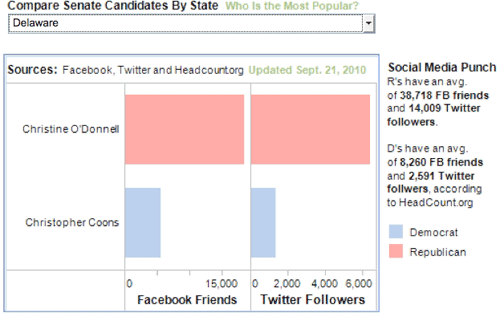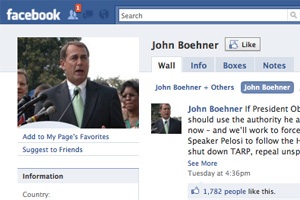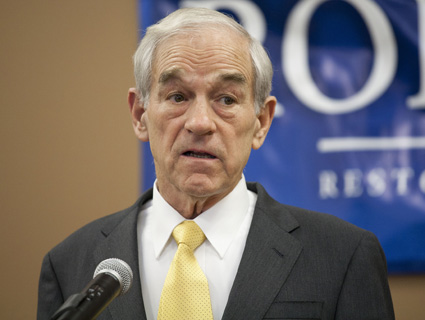If next week’s midterm elections were held on Facebook and Twitter, the GOP would probably sweep both houses of Congress. Republican Senate candidates, for example, now marshal a total 1.4 million Facebook fans and 500,000 Twitter followers—roughly five times more than their Democratic opponents. It would appear that even after Howard Dean’s tech-savvy 2004 campaign and Barack Obama’s impressive 2008 online organization, the Democrats have gone from being the party of geeks to being the geeks who missed the party.
Anthony Calabrese of PBS’ Media Shift has pulled together data and charts suggesting that 2010 “is shaping up to be the election year that’s defined by social media.” He points out that members of online social networks are about twice as likely as nonmembers to donate to candidates; they’re also twice as likely to say they’re “occasionally or very active in politics.” Does that mean progressives should get on Facebook and try to close the digital enthusiasm gap by immediately friending Nancy Pelosi?
 Not necessarily. Delaware’s tea party senatorial candidate, Christine O’Donnell, has five times as many Facebook and Twitter fans as her Democratic opponent (left), but seems to be headed for defeat. Champion tweeter Carly Fiorinia counts more Twitter followers (300,000) than all Senate candidates from both parties combined, yet is trailing Sen. Barbara Boxer in the polls. Both of them could learn a lesson from the presidential campaign of Rep. Ron Paul (R-Texas), which in late 2007 counted more Facebook and MySpace supporters than any Republican; more Google searches, YouTube subscribers, and website hits than any presidential candidate; and more Meetup members than the front-runners of both parties combined. In 2008, Paul shattered single-day fundraising records with his online “money bombs.” Yet he still failed to win a single state primary.
Not necessarily. Delaware’s tea party senatorial candidate, Christine O’Donnell, has five times as many Facebook and Twitter fans as her Democratic opponent (left), but seems to be headed for defeat. Champion tweeter Carly Fiorinia counts more Twitter followers (300,000) than all Senate candidates from both parties combined, yet is trailing Sen. Barbara Boxer in the polls. Both of them could learn a lesson from the presidential campaign of Rep. Ron Paul (R-Texas), which in late 2007 counted more Facebook and MySpace supporters than any Republican; more Google searches, YouTube subscribers, and website hits than any presidential candidate; and more Meetup members than the front-runners of both parties combined. In 2008, Paul shattered single-day fundraising records with his online “money bombs.” Yet he still failed to win a single state primary.
Social media success may have more to do with a candidate’s personality than his or her electability. O’Donnel, Fiorina, and Paul are all interesting, polarizing figures whose tweets and status updates are more unpredictable (and fun to read) than, say, Harry Reid’s. Many of their followers don’t live in the same state. And there’s no guarantee that all their followers will even vote for them any more than all of @SarahPalinUSA‘s hundreds of thousands of Twitter pals would vote for her. All of which points to the fundamental problem facing this season’s Republican challengers: They’ve generated a lot of online buzz, but “likes” and tweet memes don’t necessarily translate into warm bodies in voting booths. Even for winning candidates, the economic climate, the prevailing mood towards incumbents, and the ability to get supporters to the polls may prove more important than how many friends they have.















